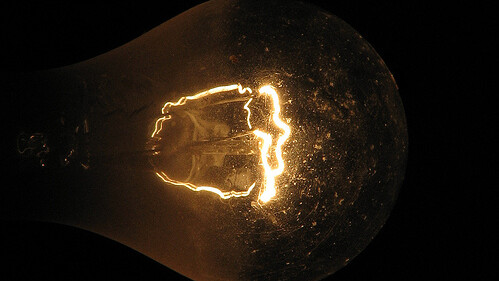Smart New World?
Key factors for the legitimate and acceptable use of smart meters

The "Smart new world?" research project has for the first time collected consumer and expert demands and expectations in the form of interviews and focus groups on possible scenarios for the introduction of smart meters.
Smart metering is different. Smart electricity meters can read the electricity consumption of individual households to the second and can also switch them off. Smart meters are often praised as an instrument to encourage a sustainable use of energy, since they allow consumers to judge their consumption better and thus save CO2
Cost issues and concerns about privacy
However, there are still a number of unanswered questions. How are the investment costs to be divided and uniform standards implemented? If everyone has his own electricity consumption, there is also the danger that the individualised tariffs will become unmanageable. If cheap tariffs are only available at certain times of day, there is the risk of social justice.
However, the main issue is that of data protection and privacy. If electricity meters communicate the information about when we switch our heating on and off and when we leave a room, our behaviour can be monitored even at home.
Elaboration of guidelines and recommendations to policymakers
The "Smart new world?" research project has for the first time collected consumer and expert demands and expectations in the form of interviews and focus groups on possible scenarios for the introduction of smart meters. This led to the proposal of requirements and design modifications of the smart meters that network operators, energy providers and regulatory bodies must satisfy if the devices are to be introduced on a large scale. In addition, recommendations were made to policymakers. The study shows very clearly that consumers require cost transparency and want to know about the use of the data.
All stakeholders at one table
How can smart metering be introduced successfully and acceptably in Austria? "Before they are introduced, time should be taken to develop know-how. Uniform standards are currently being prepared at EU level, and it is important that we participate actively in this process and continue communication with the citizens", to quote Walter Peissl, the deputy director of the ITA. As an accompanying measure, he recommends transparent tariff models, a clear investment cost calculation and an ombudsman's office for consumers.
Publications
Publications
- . (2022). Disruption in Society - TA to the rescue! EPTA Report 2022 (p. 88). Brussels. Retrieved from https://www.parlament.cat/document/composicio/394503200.pdf
- . (2012). Smart New World?. Ita-Newsletter, 9 f. doi:10.1553/ITA-nl-0612
- . (2012). Smart New World?. Ita-Newsfeed. Retrieved from http://www.oeaw.ac.at/ita/projekte/news/smart-new-world
- . (2012). Smart New World? Key Factors for an Effective and Acceptable Deployment of Smart Meters – Projekt-Endbericht. Wien. Retrieved from https://epub.oeaw.ac.at/?arp=0x0031e5b4
- . (2010). Smart New World?. Ita-Newsletter, 6 f.Retrieved from https://epub.oeaw.ac.at/ita/ita-newsletter/NL0310.pdf#6
Conference Papers/Speeches
Conference Papers/Speeches
-
17/12/2012
, Bielefeld
Walter Peissl:
Stakeholder-Beteiligung in TA-Prozessen
Meeting Uni Bielefeld -
09/09/2012
, Wien
Walter Peissl:
Statement und Diskussion am Podium zum Thema Smart Meter und Datenschutz
#DNP12 – Daten, Netz & Politik 2012 -
30/05/2012
, Wien
Walter Peissl:
Technologieentwicklung – Nutzerperspektive und Akzeptanz am Beispiel Smart Meter
Konsumentenpolitisches Forum 2012 -
13/03/2012
, Wien
Walter Peissl, Jaro Krieger-Lamina:
Smart New World? Ideen zu einer sozial verträglichen Einführung von Smart Metern in Österreich
ExpertInnenworkshop 'Smart New World? Schlüsselfaktoren für einen effektiven und akzeptablen Einsatz von Smart Metern'
Duration
02/2010 - 01/2012
Contact
- Johann Čas